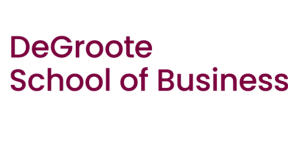
Insight Tags
All Insights | Alumni | Diversity | Education | ESG | Ethics | Event | From The Principal | Human Resource Management | Innovation | Leadership | Purpose | Video | Webinar
Insights
Perspectives from The Directors College
Embracing Transformation or Why You Will Need to Replace 50% of Your Board
On April 28, in another installment of The McMaster Collaboratorium, Principal of The Directors College, Michael Hartmann and guest panelists Richard Counihan, CEO DigniFi and Barry Libert, Chairman and CEO, AIMatters, explored how companies will need to reexamine the competencies of their directors given the current and lasting ways in which markets are changing and business models are being disrupted.
Innovation
Environmental, Social and Governance Issues Come Under the Microscope Amid a Global Pandemic
Coro Strandberg and Bob Willard, Faculty of The Directors College, take a look at how companies and their board will be judged by their response to the pandemic and emerging ESG issues that will dominate the post-COVID environment.

Harnessing Governance During COVID-19 to Accelerate Board ESG Oversight Now and Post Pandemic
On April 21, Michael Hartmann, Principal of The Directors College with guest panelists Judy Cotte, CEO at ESG Global Advisors and Coro Strandberg, President of Strandberg Consulting and Faculty of The Directors College discuss how boards can manage environmental, social and governance (ESG) components during the pandemic and how to better manage risk and generate sustainability long-term.

Lessons for Leading a Virtual Organization
In the April 15 session of The McMaster Collaboratorium, Dr. Michael Hartmann and guest panelist Jessica Nordlander, COO of Thoughtexchange, explored the experience of running a fully virtual business with 100s of employees around the world and the implications for leadership, governance and change management.

Managing Reputation in Times of Disruption: Lessons in Real Time
On April 14, in the first installment of The McMaster Collaboratorium, Principal of The Directors College, Michael Hartmann and guest panelist John Crean, Senior Managing Director at TENEO Canada, take a deeper look at managing reputation: What are the best practices; how boards are trying to apply best practice principles under uncertain circumstances, and what might be the new set of practices and principles to emerge post-pandemic.

Agile Companies Need Educated Board Members
Principal of The Directors College Dr. Michael Hartmann talks about the scandals that lead to the creation of governance education, the current socio-economic climate that is driving boardroom oversight today, and what will impact governance in the future.

The Educated Director
Governance education in Canada took root in the early 2000s in the wake of the institutionalized fraud and corruption that plagued North American corporations. Most notably, the Enron scandal, that resulted in the loss of billions in pensions and stock prices and drove the creation of new regulations and legislation to increase accountability, highlighted the need for stronger board governance.

The Ethical Director: Responsibility and Governance
When using the word ethics in a sentence, there is often an inherent sense of understanding its true meaning -- but is that the case? Surely, ethics are black and white, no more complicated than right and wrong? On the surface, that appears so. However, ethics are impermanent, they’re not cast in stone – they are a set of moral principles, relating to or affirming a form of acceptable conduct as determined by a group of people.

Governing Innovation
The ability to innovate has long been the standard for high growth businesses, but technological advances have made it possible for companies of all shapes and sizes to innovate faster and more holistically than ever before, if they choose to. In a time of rapid change, corporate boards must evolve to embrace and support innovation and agile thinking.
Innovation
The Face of Governance is Changing
Diversity and inclusion have been a part of corporate human resource policies for a long time, but those policies have often failed to become part of the culture of an organization. Avoiding discriminatory practices is very different from actively building diverse workforces and leadership teams.

